Improve math skills Math Worksheets for 8-Year-Olds
18 filtered results
-
From - To
Unlock your child's potential with our engaging math worksheets designed specifically for 8-year-olds! Kids Academy offers a wide range of printable activities to help young learners enhance their math skills. Our worksheets cover essential topics like addition, subtraction, multiplication, division, and more. Crafted by educational experts, each worksheet aims to boost confidence, foster problem-solving abilities, and make learning fun. Perfect for both classroom and at-home practice, our resources ensure your child gets the reinforcement they need to excel. Start exploring today and watch your child master math with enthusiasm and ease!
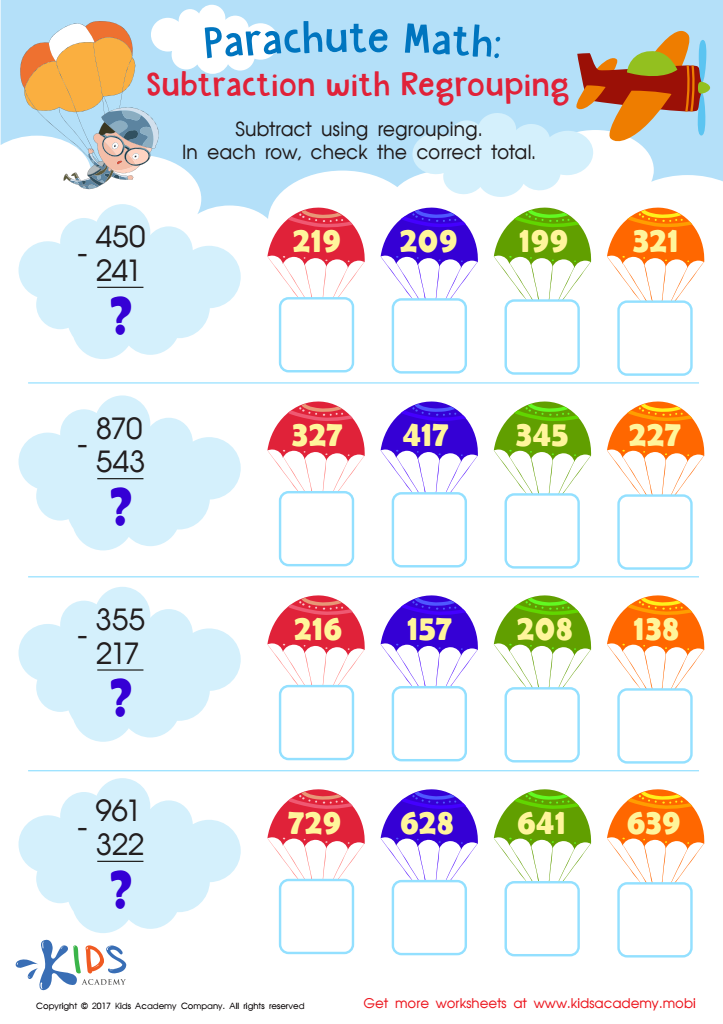

Subtraction with Regrouping for 3rd Grade Worksheet
Improving math skills for 8-year-olds is essential because these formative years lay the groundwork for future learning and academic success. At this age, children are developing fundamental skills that will be critical throughout their education, including basic arithmetic, problem-solving, and logical thinking. A solid grasp of math not only enhances their ability to understand more complex concepts later but also boosts confidence and encourages a positive attitude towards learning.
First, mathematical competence at an early age is linked to improved performance in other subjects. Math skills are intertwined with critical thinking and logical analysis, abilities that are beneficial in science, literacy, and even social studies. This cross-disciplinary advantage means children are better prepared to understand and engage with the interconnected world around them.
Second, mathematics fosters an essential skill set for everyday life, such as money management, measurement, and time planning. These practical skills enable children to navigate daily tasks more effectively and independently.
Lastly, with the growing emphasis on STEM (Science, Technology, Engineering, and Mathematics) fields, strong early math skills open up numerous career opportunities. By supporting math proficiency at an early age, parents and teachers empower children to pursue various opportunities in the future. Fostering an encouraging learning environment where math is both challenging and enjoyable can set them on a path to lifelong success.
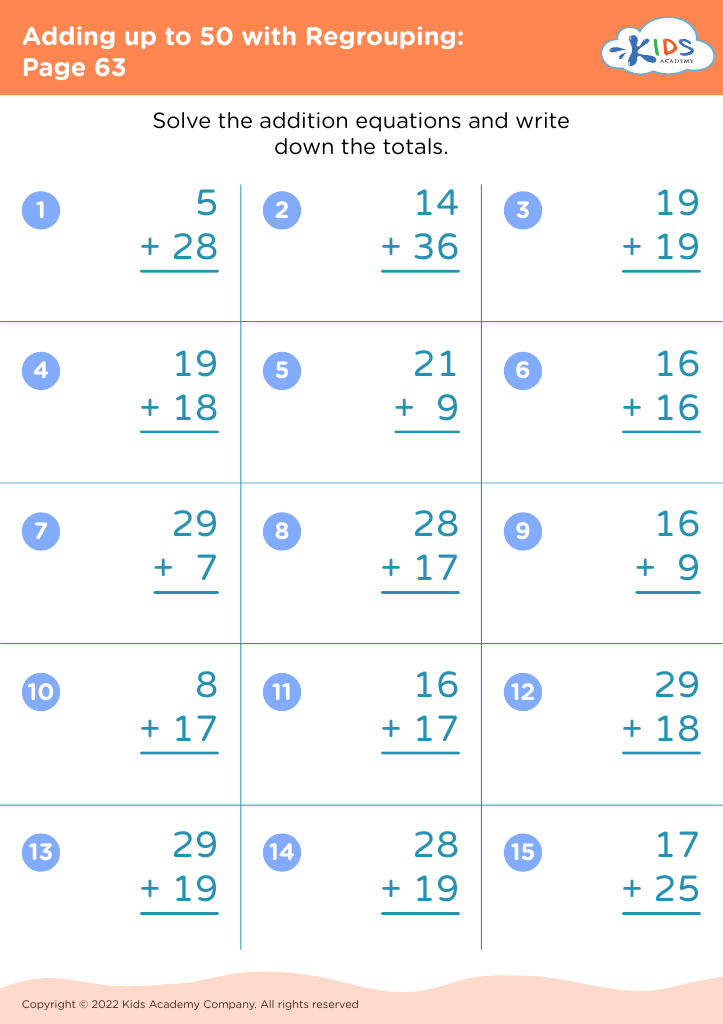



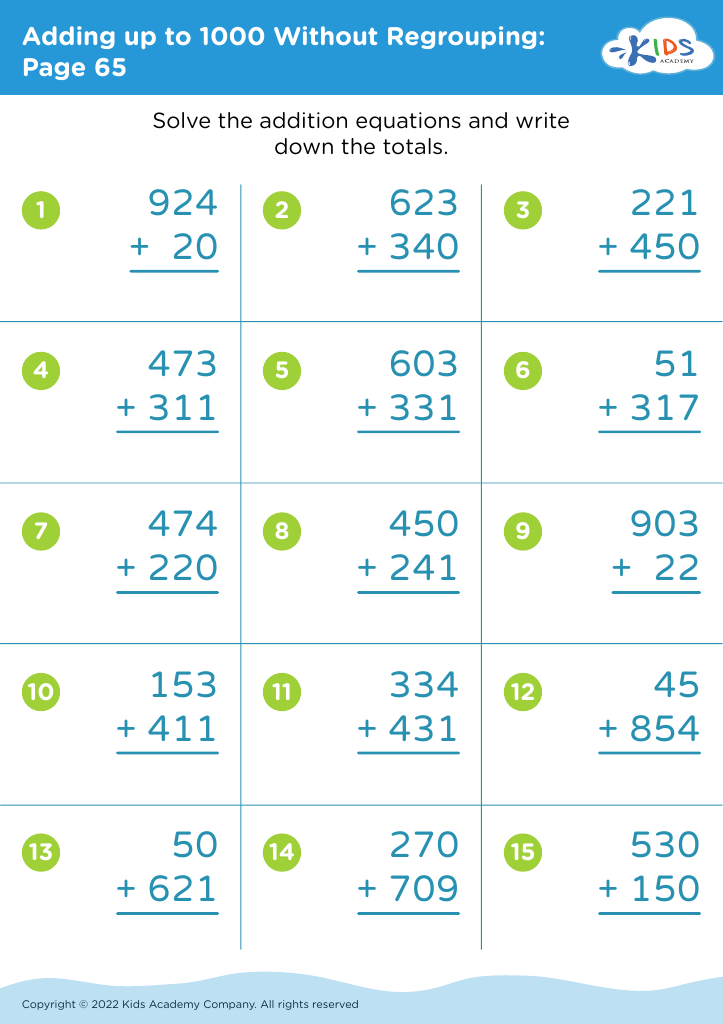




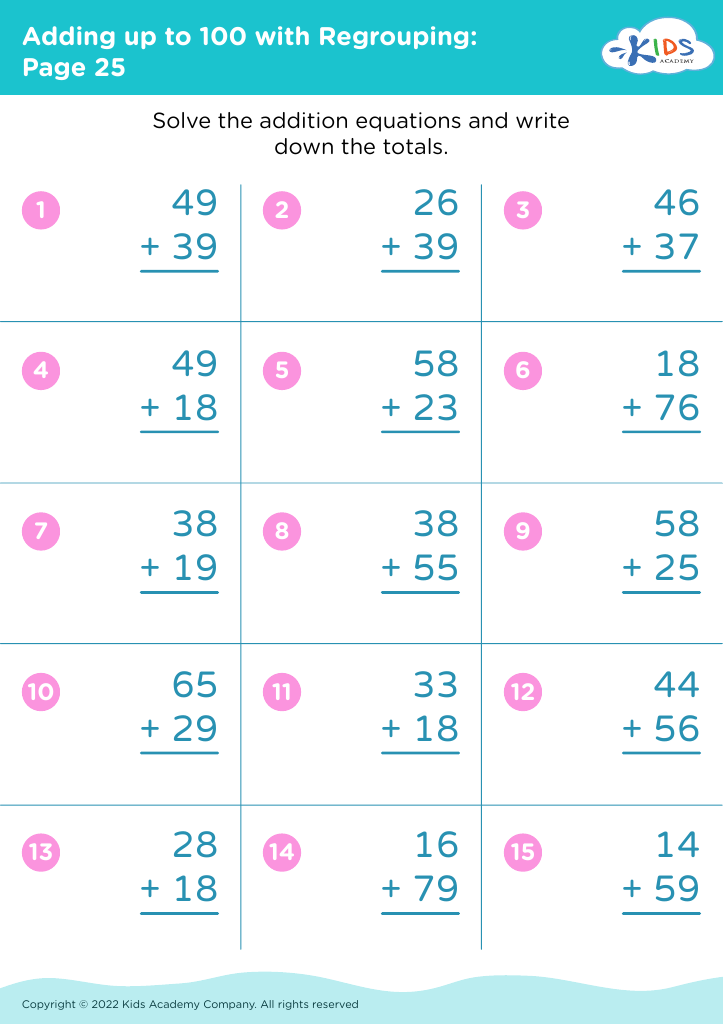

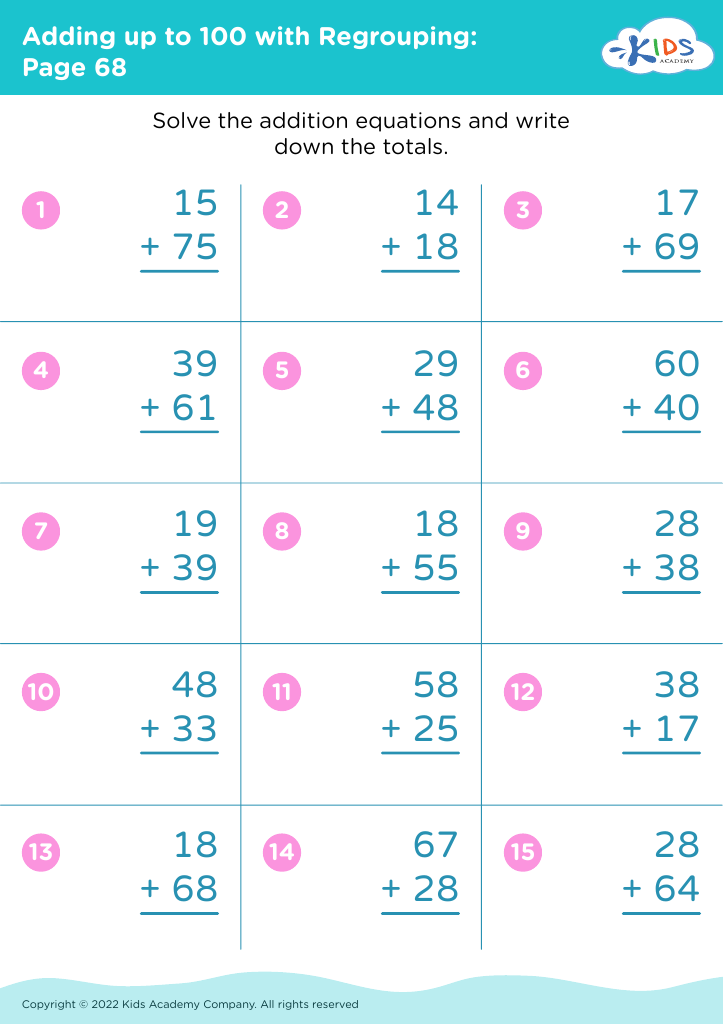
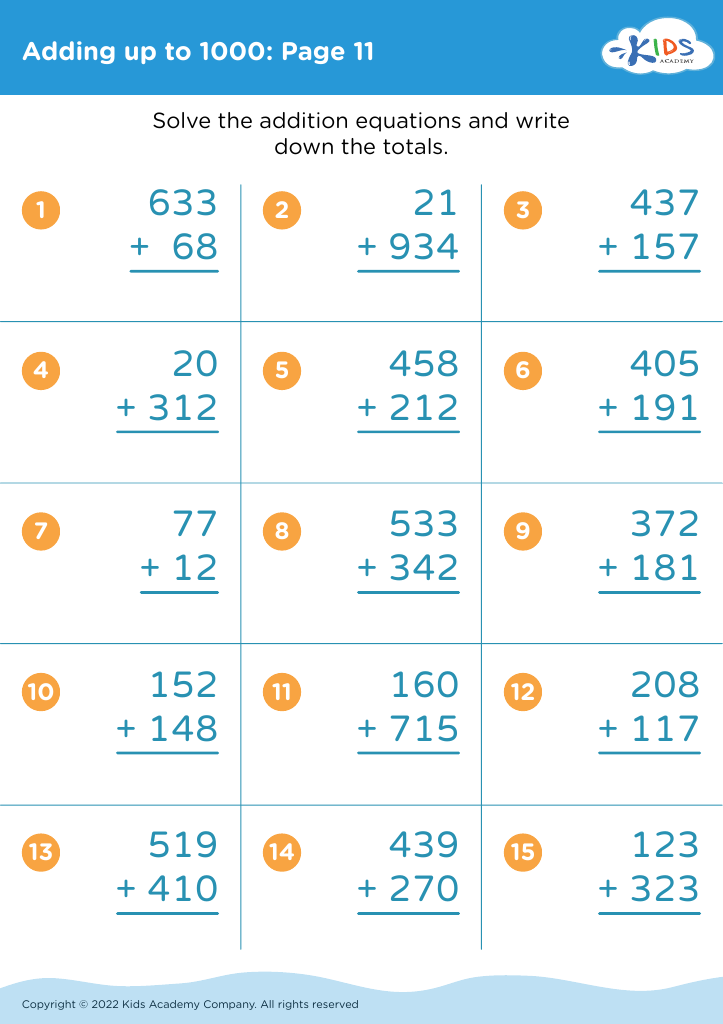


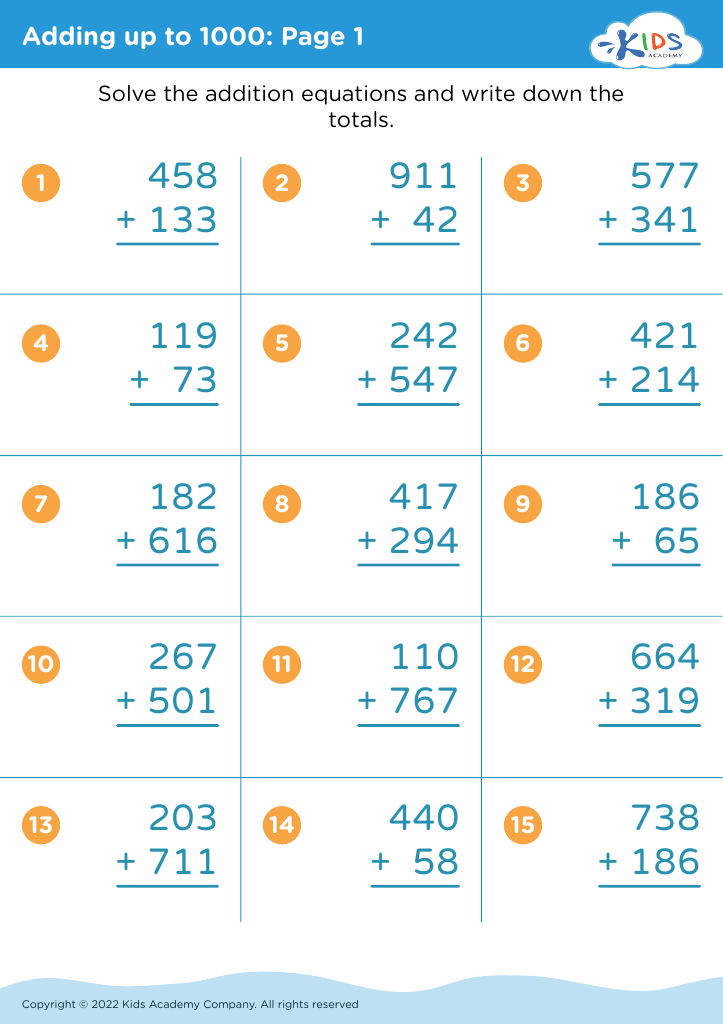

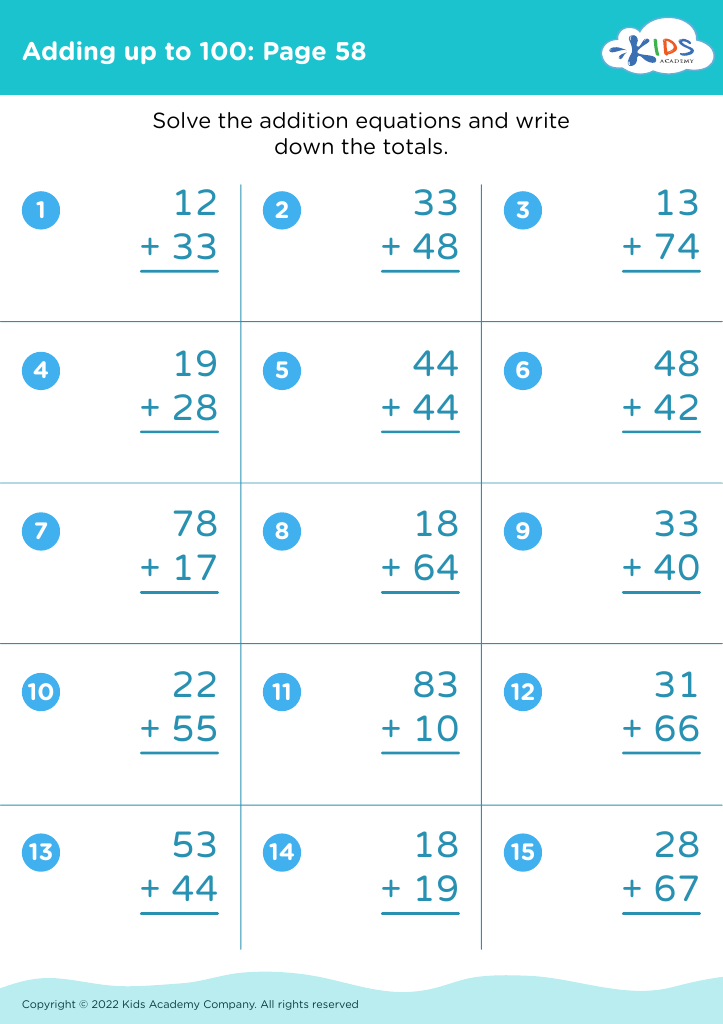

 Assign to My Students
Assign to My Students



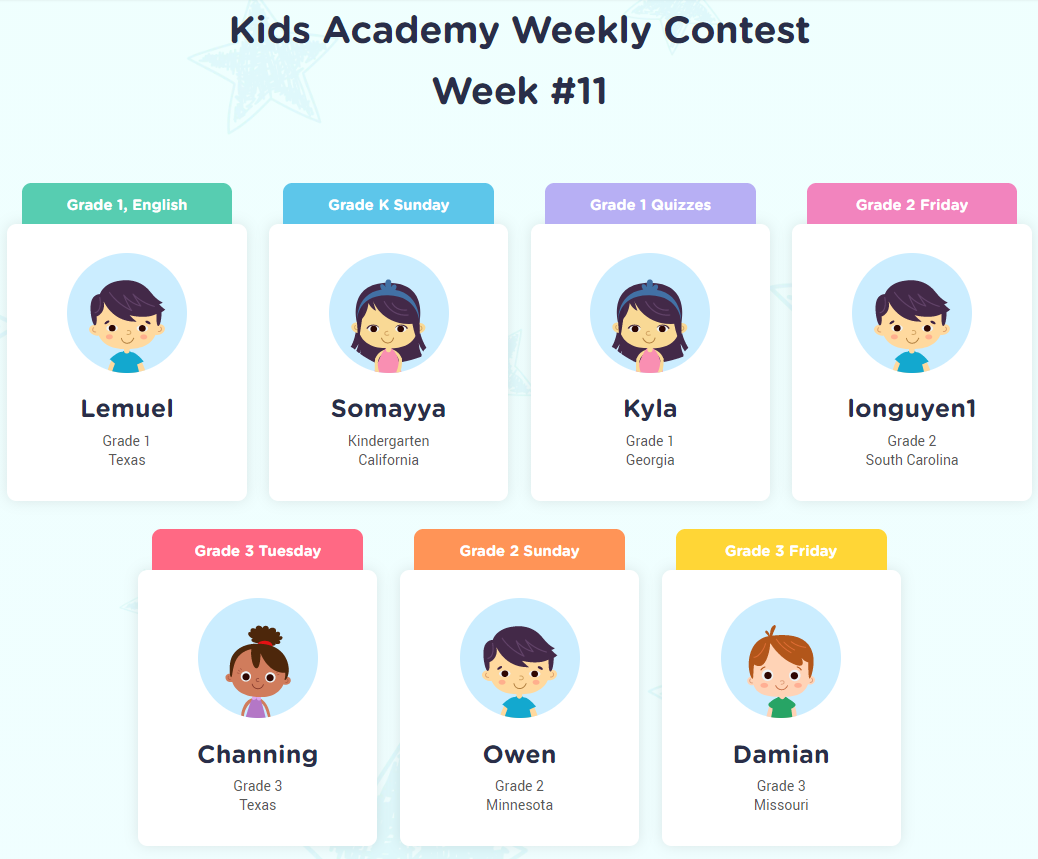


%20(1).jpg)













